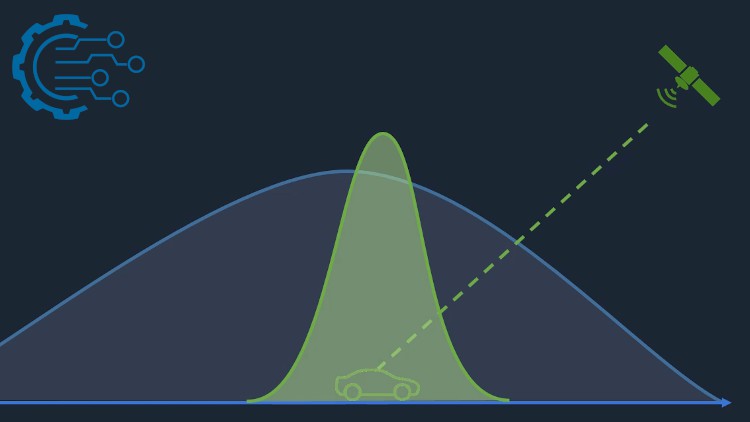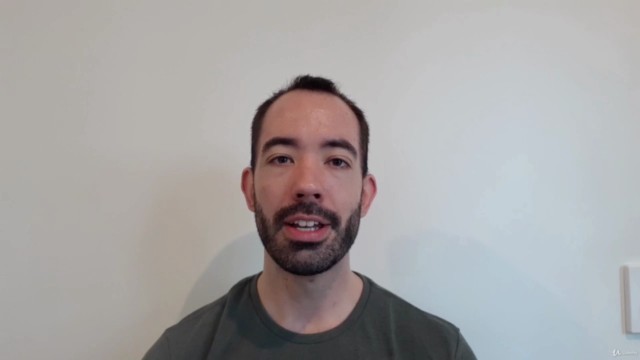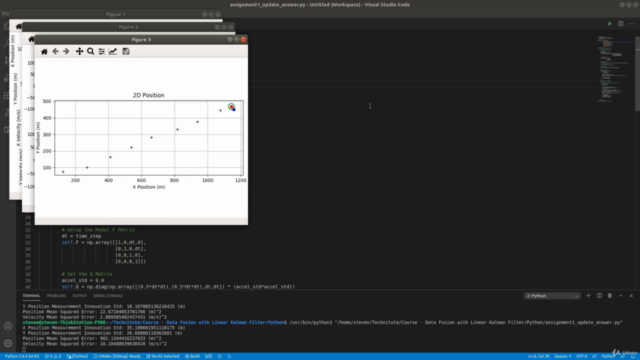Data Fusion with Linear Kalman Filter

Why take this course?
🌟 Master Data Fusion & Linear Kalman Filter with Steven Dumble 🌟
Course Title: Data Fusion with Linear Kalman Filter: Theory and Implementation
Course Headline:
Unlock the Secrets of Estimation and Data Fusion with the Powerful Kalman Filter! 🚀
You need to learn know Data Fusion and Kalman Filtering! Steven Dumble
Data Fusion is an indispensable tool in our tech-driven world, enabling sensors, measurements, and automation across a myriad of applications. TheLinear Kalman Filter, at the heart of this technology, has revolutionized the way we interpret and utilize data from complex systems. Its applications are vast, ranging from engineering to finance, and its understanding is crucial for any professional working with data-driven technologies.
Why focus on Data Fusion and Kalman Filtering? 🤔
- Data Fusion is a cornerstone of modern technology, integral to functions in virtually every advanced piece of equipment or system. 🌐
- The Kalman Filter is the go-to method for data fusion, offering a clear pathway to understanding more sophisticated methods that follow. 📊
- For beginners, wrapping one's head around the Kalman Filter and its applications can be challenging, but with the right guidance, it becomes much less daunting. 🧠
- Tuning the Kalman Filter for optimal performance can seem like an art rather than a science, but we will equip you with the tips and framework to make this process intuitive. ✨
- Avoid common pitfalls and save time by understanding how to correctly apply these concepts in practice. Become a Subject Matter Expert! 🏫
What You Will Learn:
Embark on a journey from the basics to the advanced applications of Data Fusion and the Linear Kalman Filter. This course is designed to ensure you understand the theory and can apply it effectively.
- Basic Probability and Random Variables - Lay the foundation for understanding uncertainty in data. 📈
- Dynamic Systems and State Space Representations - Learn to model complex systems and analyze their behavior. 🤖
- Least Squares Estimation - Understand how to solve estimation problems when you have measurements from a system. 🎫
- Linear Kalman Filtering - Master the process of optimal state estimation. 🔍
- Comprehensive Coverage - From theory to implementation, with practical use cases and examples. 📚
- Hands-On Practice - Apply your learning through Python and simulations. 🐍
By the end of this course, you will be equipped to:
- Express uncertainty using probability distributions. 🎲
- Convert differential systems into a state space representation. ⚛️
- Simulate and describe state space dynamic systems. 🌩️
- Use Least Squares Estimation for estimation problems. 📝
- Implement the Linear Kalman Filter in Python for optimal performance tuning. 🖥️
- Derive system matrices for the Kalman Filter applicable to any problem. 📋
Who is this course for?
This comprehensive course is tailored for:
- University Students and Independent Learners - Expand your knowledge base and stay ahead in your studies. 🎓
- Working Engineers and Scientists - Enhance your skill set with advanced mathematical theory in data fusion and Kalman filtering. 🔬
- Engineering Professionals - Sharpen your expertise and improve your problem-solving abilities related to Data Fusion and Kalman Filtering. 🛠️
- Software Developers - Gain insights into the mathematical concepts behind data fusion for more robust code implementation. 💻
- Math Enthusiasts - If you're already familiar with the theory and want to put it into practice, this course is your next step! 🚀
Take the Next Step in Your Career!
Don't miss out on the opportunity to master Data Fusion and the Linear Kalman Filter. With a money-back guarantee, there's no risk in enrolling and elevating your skills to new heights.
Ready to dive into the world of Data Fusion and Kalman Filtering? Sign up today and let's embark on this exciting learning adventure together! 🧗♂️
I look forward to guiding you through this course and supporting your journey towards mastery in estimation and data fusion.
Best regards, Steve Dumble
Course Gallery




Loading charts...
Comidoc Review
Our Verdict
Data Fusion with Linear Kalman Filter: Theory and Implementation delivers valuable insights into the world of sensor fusion. It boasts a thorough examination of challenging theory, complemented by hands-on Python examples and exercises that solidify understanding. However, some aspects such as rapid speaking pace, limited exercises, and confusing notations detract from its effectiveness. Despite these shortcomings, this course remains an informative and practical resource for those eager to delve into Linear Kalman Filters, offering a worthwhile learning experience for students proactive in seeking foundational knowledge.
What We Liked
- Comprehensive coverage of Linear Kalman Filter theory and implementation
- Well-organized content with ample information for practical application
- Python used for examples and exercises, enabling hands-on learning
- Clear and well-structured slides with thoughtful explanations
- Prompt responses to questions and doubts
- Realistic examples that facilitate independent thinking
Potential Drawbacks
- Rapid speaking pace can be challenging for first-time learners of Kalman Filters
- Lack of detailed script explanations for KF examples
- Limited number of exercises
- Complex theory could benefit from further clarification and extension
- Confusing variable notations at times
- Built-in code segments in LSE section require improvement